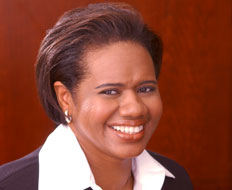Is there a reason foodservice is still so heavily dominated by men?
I don’t think there’s a specific reason, compared to other industries, other than maybe awareness. The foodservice industry has been plagued by people not clearly understanding the benefits and opportunities available in the industry. Most people think about restaurant jobs as the person working the counter, not necessarily the person who can own the restaurant or brand.
There’s not an educational track in our current system that highlights the benefits of working in the industry. I think that plays against us. And predominantly it’s been a male-dominated industry, especially on the equipment side. But that’s changing. If you look at manufacturers like Pepsi and Coke, you can tell it’s changing, but it’s going to take time.
Women recently became the majority in the American workforce. What can companies do to make themselves more attractive to professional women?
That’s really what WFF is focused on. It’s an organization whose mission is about leading the transformation for gender diverse leadership within the foodservice industry. We do that in a multiple of ways. We do that by focusing on the individual and preparing them with the leadership confidence needed to excel. Our focus is on directors, senior VPs, and C-suite and board members. WFF does that because the biggest leadership gap is in those positions.
In addition to that, we work with organizations to make sure they’ve created an environment where once these women are prepared, they’re in an environment where employers know how to engage them and ensure that leaders understand the nuances that are required to elevate women. Part of that includes educating men about how women behave and the differences that may arise in working with them. Some men, quite frankly, have never had that experience. We tend to, as human beings, go with what we know and stay in our comfort zone. Part of what we do at WFF is create environments where people can build new, strategic networks that include men and women. That creates relationships and the opportunities to do business together—relationships that matter when a woman is being considered for elevation.
So men are welcome at WFF events as well?
Yes. Clearly we create an environment for women, but the whole issue of inclusion is based on creating new touch points and interactions for people. So the more you work together in these types of environments, the more you realize we’re alike. Most importantly, it helps remove barriers so we can focus on driving results in our companies.
Is there resistance among men to that kind of strategy? I’m thinking of other industries that have come under fire recently for having “boys club” cultures.
There are segments in our industry where that is true, but here’s the difference: People leading the companies in this industry share one big concern. We talk about sustainability, the economy, but at the end of the day we have to have the right people to drive our businesses. So it’s more a question of: How do I recruit and retain the right talent?
Even though there have clearly been clubs in the past, there’s an openness today that I’ve never experienced in my 30 years. People are saying, “We have to figure out how to get women in the pipeline, and we need to figure out how to get them engaged and motivated.” That pipeline idea is important because when it comes to choosing the next generation of top leaders, they’ll need to have had experience running a P&L, they’ll need to have worked on marketing, they’ll need to have worked globally, they’ll need to understand how to build high-performing teams. Those types of things will prepare a woman to be a CEO.
Are women prepared to take on those types of roles? The excuse in the past has been a lack of education, but are there other draw backs for having women leaders?
Yes, they’re prepared. If you look at just the changing demographics of the number of women who are in the work force today, the number of women who have taken on multiple assignments, the number of women who have, quite frankly, taken risks to gain those types of expertise, there are tons of women who are prepared.
Look around at the companies who have taken on this issue of diversity inclusion. When you have the commitment at the top of your organization, saying this is important for us and we’re going to put our resources and compensation around it, all of a sudden you see women in those roles and they deliver.













